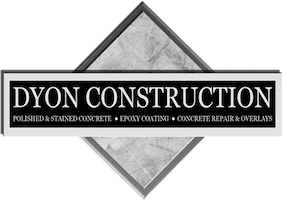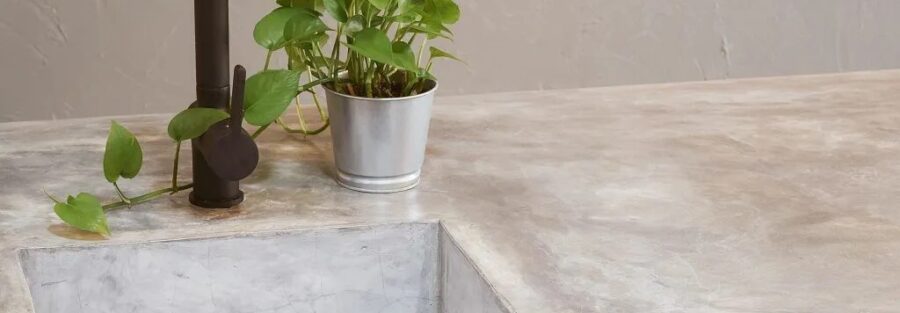Introduction
Choosing the right countertop material is a pivotal decision in kitchen and bathroom design, influencing both the aesthetics and functionality of the space. Concrete and granite are two popular options, each offering unique benefits and drawbacks. This article delves into the details of concrete and granite countertops, examining their characteristics, advantages, and disadvantages, as well as cost, durability, maintenance, and design versatility to help you determine which material is the better choice for your home.
Overview of Concrete Countertops
Concrete countertops are a modern and versatile option that has gained popularity for their industrial-chic appeal and customizability. Made from a mixture of cement, aggregates, and pigments, concrete countertops are poured and cast in molds, allowing for a wide range of shapes, sizes, and finishes. They can be precast in a shop or poured in place on-site, providing flexibility in design and installation. Concrete countertops can be customized with various colors, textures, and embedded materials like glass, stones, or shells to create a unique and personalized look.
Overview of Granite Countertops
Granite countertops are a classic and luxurious choice that has long been favored for their natural beauty and durability. Granite is a natural stone formed from cooled magma, characterized by its distinctive grain patterns and rich colors. Each slab of granite is unique, with variations in color and pattern that add to its appeal. Granite countertops are cut and polished from large blocks of stone, creating a smooth and glossy surface that is both elegant and practical. Known for their strength and resistance to heat, scratches, and stains, granite countertops are a staple in high-end kitchens and bathrooms.
Pros and Cons of Concrete Countertops
Pros
One of the main advantages of concrete countertops is their customizability. They can be molded into any shape or size and finished with a variety of colors and textures, allowing for a truly bespoke design. Concrete is also incredibly durable, able to withstand heavy use and high temperatures without damage. Its industrial aesthetic is perfect for contemporary and minimalist designs, and its versatility means it can be tailored to fit any style, from rustic to modern.
Cons
Despite their many benefits, concrete countertops do have some drawbacks. They are susceptible to cracking, particularly if not properly reinforced or if exposed to extreme temperature changes. Concrete is also porous, meaning it can stain easily if not adequately sealed. Regular sealing and maintenance are required to keep concrete countertops looking their best, which can be a drawback for those seeking a low-maintenance option. Additionally, the installation process can be complex and time-consuming, often requiring professional expertise.
Pros and Cons of Granite Countertops
Pros
Granite countertops are renowned for their natural beauty and unique patterns, which can add a touch of elegance and sophistication to any space. They are extremely durable and resistant to heat, making them ideal for kitchen environments. Granite is also relatively low-maintenance compared to other natural stones, requiring only periodic sealing to maintain its luster and prevent staining. The hardness of granite makes it resistant to scratches and chips, ensuring a long-lasting surface that can withstand daily wear and tear.
Cons
However, granite countertops are not without their disadvantages. They can be quite expensive, particularly for high-end or exotic slabs. The weight of granite also necessitates sturdy cabinetry and professional installation, adding to the overall cost. While granite is generally resistant to stains, it is still porous and can absorb liquids if not properly sealed. Additionally, the natural variations in color and pattern may not appeal to everyone, and matching slabs for larger surfaces can be challenging.
Cost Comparison
When it comes to cost, concrete countertops can vary widely depending on the level of customization and the complexity of the design. Basic concrete countertops may start around $65 to $135 per square foot, including installation, while highly customized designs with intricate details can cost significantly more. On the other hand, granite countertops typically range from $40 to $200 per square foot, depending on the quality and rarity of the stone. While both materials can be costly, granite tends to be more expensive, especially for premium or exotic varieties.
Durability and Maintenance
In terms of durability, both concrete and granite are strong and long-lasting materials, but they have different maintenance requirements. Granite is highly durable and resistant to most forms of damage, but it does require periodic sealing to maintain its resistance to stains and bacteria. With proper care, granite countertops can last a lifetime.
Concrete, while also durable, requires more maintenance to prevent staining and cracking. Regular sealing is essential to protect the surface from moisture and spills, and any cracks that do develop will need to be repaired to prevent further damage. Despite these maintenance needs, concrete countertops can also last for many years with proper care.
Aesthetic and Design Options
Aesthetically, concrete and granite offer different but equally appealing options. Concrete’s main advantage lies in its customizability. It can be colored, textured, and shaped to match any design vision, from sleek and modern to rugged and industrial. Embedding materials like glass, stones, or metal accents can add unique and personal touches.
Granite, with its natural beauty and unique patterns, offers a timeless elegance that can elevate any space. Each slab of granite is unique, with a wide range of colors and patterns to choose from, making it easy to find a design that complements your home. The polished, glossy finish of granite adds a touch of luxury and sophistication that is hard to match with other materials.
Conclusion
Deciding between concrete and granite countertops depends on your specific needs, preferences, and budget. Concrete countertops offer unmatched customizability and a modern, industrial aesthetic, but require more maintenance and can be prone to cracking. Granite countertops, on the other hand, provide timeless beauty, durability, and relatively low maintenance, but come at a higher cost and with limited design flexibility.
By carefully weighing the pros and cons of each material, you can choose the countertop that best fits your lifestyle and enhances the overall design of your space. Whether you opt for the bespoke charm of concrete or the classic elegance of granite, both options promise to add value and beauty to your home for years to come.

